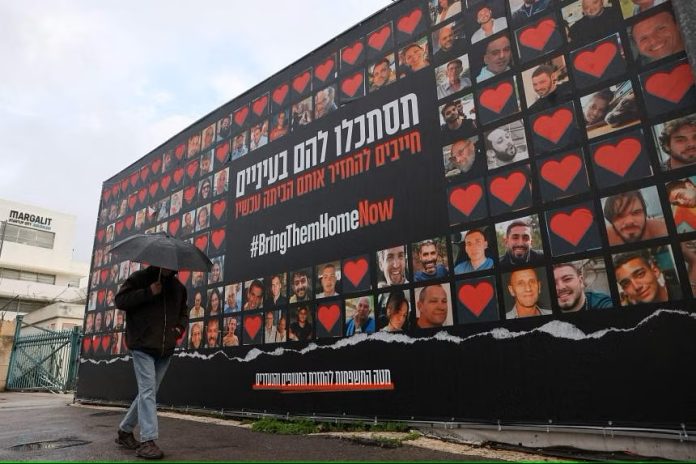3 February 2024
Israel has been plunged into a mental health crisis by the Hamas attacks of October 7, with the population reeling from anxiety and depression and at risk of post-traumatic stress disorder, said an AFP report citing experts.
A study published in the Lancet medical journal on January 5 said “all citizens in Israel were, in some fashion, exposed to this attack of unprecedented scope and traumatic impact”.
“It reflects a mass national trauma,” said the study, co-authored by clinical psychologist Yossi Levi-Belz, which looked at PTSD, depression and anxiety rates after the attack and found “a broad and significant impact” on the mental health of Israelis.
The country’s health minister, Uriel Buso, meanwhile, has acknowledged a lack of mental health provision that predates the war and will need a “quantum leap” to overcome.
The violence that has so traumatised Israelis began in the early hours of October 7, the last day of the Jewish holiday of Sukkot, when Hamas fighters broke through the militarised border with Gaza.
The security forces also suffered a heavy toll, including during the three days of heavy fighting it took for Israel to regain control of its territory.
In all, the Hamas attack resulted in the deaths of more than 1,160 people in Israel, most of them civilians, according to an AFP tally based on official Israeli figures.
Police are still working to assess the scale of the sexual violence that was reported alongside the killings.
And the fate of 132 hostages being held captive in Gaza, 27 of whom are believed to have died, continues to haunt the country.
Israel’s military has responded to the attack with a relentless military offensive, aimed at destroying Hamas, that has killed at least 27,131 people in Gaza, mostly women and children, according to the health ministry in the Hamas-run territory.
More than 1.7 million Gazans have been displaced by the war, the United Nations says.
From the day of the attack, calls to Israel’s ERAN Emotional First Aid helpline nearly doubled, its director Shiri Daniels said.
Among those affected were not only the survivors who had suffered unimaginable horrors at first hand, but also the families of the victims and hostages, as well as rescuers and police officers, Daniels added.
Even those not directly impacted were still affected, she told AFP, adding “everyone in Israel identifies with the victims”.
Daniels describes cases of children unable to be left alone by their parents at night, adults unable to concentrate or consumed by guilt at not being able to save their loved ones.
Health Ministry Director General Moshe Bar Siman-Tov calculated that out of Israel’s population of 9.7 million people, some 100,000 have been exposed to potentially traumatising incidents since the start of the war. And around 200,000 have been displaced from their homes by the violence.
Even before the war, Israelis’ mental health was in a poor condition, in particular due to the lingering effects of the coronavirus pandemic.
The World Health Organization estimated that the proportion of Israeli adolescents who regularly complained of feeling low or nervous or having difficulty sleeping had risen from 20 percent in 2019 to 30 percent in 2022, “pointing to a significant rise in mental distress following the pandemic”.
In a statement in January, health minister Buso said it was “no secret that the issue of mental health was suffering from a huge deficiency” before October 7.
“Now it is necessary to make a significant quantum leap in the field for years to come,” he added.
The increased demand for mental health services comes despite a shortage of qualified professionals.
In response, the Israeli government has announced a recruitment campaign and voted in mid-January to invest an extra 1.4 billion shekels ($380 million) in boosting mental health system.
However, experts say it is still too soon to accurately gauge what psychological scars the attack has left behind, or to assess the possible treatments needed.




